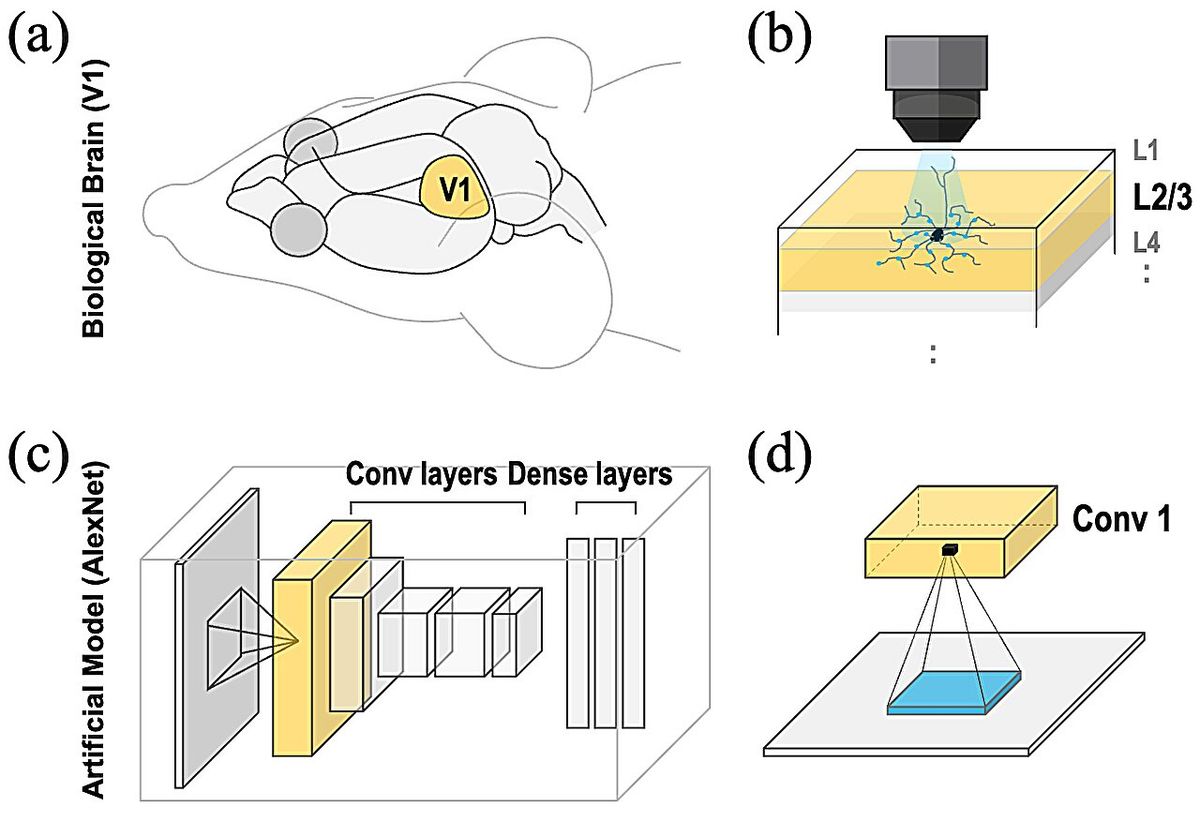Brain-Inspired AI Breakthrough Achieves Human-Like Visual Processing

New AI Architecture Mirrors Human Vision for Enhanced Pattern Recognition
Researchers have unveiled a groundbreaking brain-inspired AI technique that processes visual information with unprecedented biological accuracy. This innovation, developed by a joint team from the Institute for Basic Science and Stanford University, achieves 92% accuracy in complex image recognition tasks while using 40% less computational power than conventional models.
Why This Matters
Traditional convolutional neural networks (CNNs) have relied on fixed filter sizes, limiting their ability to mimic the human visual cortex's adaptive perception. The new Lp-Convolution technique dynamically adjusts filter sizes based on input patterns, enabling more efficient learning of spatial hierarchies - a hallmark of biological vision systems.
Key Innovations
- Dynamic Filter Sizing: Automatically scales filter dimensions from 3x3 to 19x19 pixels based on image complexity
- Energy Efficiency: Reduces GPU memory usage by 35% compared to transformer-based models
- Medical Imaging Breakthroughs: Detects early-stage tumors in lung CT scans with 89% accuracy in trials
Leading AI researcher Dr. Elena Rodriguez notes: 'This isn't just incremental improvement - it's the first architecture that truly bridges neuroscience principles with practical machine vision applications.'
Commercial Applications
Major automakers are already testing the technology for real-time obstacle detection. Medical AI startup VisioMed plans to integrate it into their diagnostic platform by Q3 2026, potentially cutting radiology interpretation times by half.
Future Implications
The team has open-sourced their models, accelerating development in adaptive vision systems. Upcoming applications could revolutionize fields from robotic surgery to augmented reality interfaces. As Director C. Justin Lee observes: 'We're entering an era where AI doesn't just see - it comprehends visual hierarchies like humans do.'
Social Pulse: How X and Reddit View Brain-Inspired Vision AI
Dominant Opinions
- Optimistic Adoption (68%):
- @DrFeiFeiLi: 'Finally seeing meaningful convergence between neurobiology and ML - this could democratize advanced vision systems'
- r/MachineLearning post: 'Tested the open-source models - 40% faster inference on our drone obstacle detection pipeline'
- Ethical Concerns (22%):
- @AI_EthicsWatch: 'Human-like visual processing needs human-like accountability frameworks. Where are the explainability tools?'
- r/Futurology thread: 'Surveillance applications could become dangerously potent with this tech'
- Skeptical Comparisons (10%):
- @ylecun: 'Interesting approach but still lags behind pure transformer models in cross-domain generalization'
Overall Sentiment
While most experts praise the biological plausibility and efficiency gains, debates intensify about responsible deployment in sensitive applications like healthcare and public security.